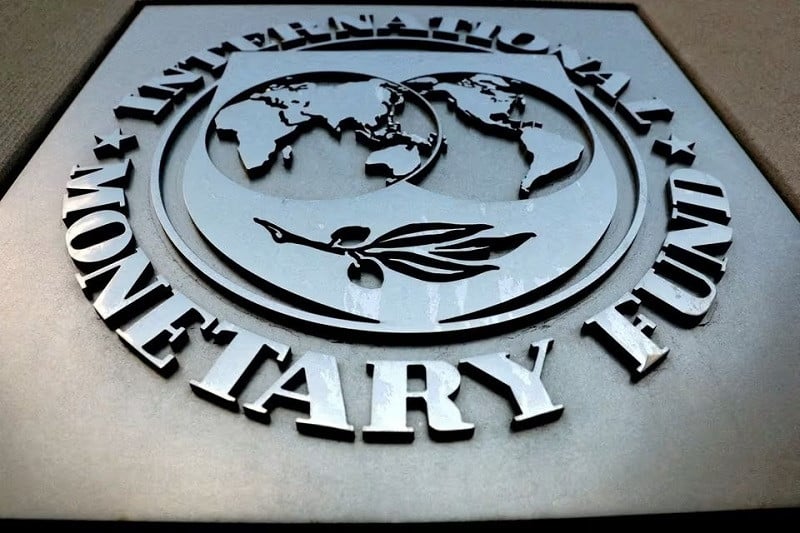- Copy to clipboard
- Moderator
- #1
- Jan 25, 2024
- 111,139
- 589
- Origin

- Residence

IMF Executive Board meeting expected 'late April'
April 5, 2024
The International Monetary Fund (IMF) said its Executive Board meeting is expected to be held in "late April" where approval would pave way for Pakistan to receive funds of around $1.1 billion (SDR 828 million) as its final tranche of the $3-billion Stand-By Arrangement (SBA) inked last year in June.
This was stated by IMF Communication Director Julie Kozack while addressing a media briefing.
"So, on March 19, IMF staff and Pakistani authorities reached a staff-level agreement on the second and final review under Pakistan's SBA.
"This is subject to approval by the IMF's Executive Board. Upon approval by the Board, Pakistan will have access to around $1.1 billion, and that would bring total disbursements under the SBA to about $3 billion.
"We do expect the board meeting to take place in late April," she said.
IMF ready for formulation of 'new medium-term programme', responds to PTI's letter
Kozack said the staff-level agreement recognises the strong programme implementation by the State Bank of Pakistan (SBP) and the caretaker government in recent months as well as the new government's intentions for ongoing policy and reform efforts to move Pakistan from stabilisation to a strong and sustainable recovery.
On the country's economic fundamentals, the IMF official said Pakistan's economic and financial position has improved in the months since the first review was completed.
"Growth and confidence are continuing to recover. And we will be releasing in the next weeks, as part of our World Economic Outlook, our latest growth forecasts for Pakistan."
Kozack reiterated that the Washington-based lender "stands ready" to engage in discussions on the new programme discussion with the Pakistani authorities.
"The authorities have expressed interest in a successor IMF-supported programme with the aim of resolving Pakistan's fiscal and external stability challenges and laying the foundation for inclusive growth.
"And, of course, we stand ready to engage in discussions in the coming months," she said.
The statement comes as Pakistan's foreign exchange reserves increased by $19 million on a weekly basis, clocking in at $8.04 billion as of March 29, data released on Thursday showed.
Total liquid foreign reserves held by the country stood at $13.38 billion, while net foreign reserves held by commercial banks stood at $5.34 billion.
However, the level of reserves is still low for an import-dependent economy, and can put pressure going forward. However, Pakistan has already brought up the need for another IMF bailout, with Finance Minister Muhammad Aurganzeb stating that discussions on it will be held during the spring meetings.
The Spring meetings 2024 of the Board of Governors of the World Bank Group and International Monetary Fund (IMF) are scheduled on April 15-20, 2024 in Washington DC, it was reported earlier. Aurangzeb is expected to lead Pakistan's delegation.
- IMF official says growth and confidence are continuing to recover in Pakistan
April 5, 2024
The International Monetary Fund (IMF) said its Executive Board meeting is expected to be held in "late April" where approval would pave way for Pakistan to receive funds of around $1.1 billion (SDR 828 million) as its final tranche of the $3-billion Stand-By Arrangement (SBA) inked last year in June.
This was stated by IMF Communication Director Julie Kozack while addressing a media briefing.
"So, on March 19, IMF staff and Pakistani authorities reached a staff-level agreement on the second and final review under Pakistan's SBA.
"This is subject to approval by the IMF's Executive Board. Upon approval by the Board, Pakistan will have access to around $1.1 billion, and that would bring total disbursements under the SBA to about $3 billion.
"We do expect the board meeting to take place in late April," she said.
IMF ready for formulation of 'new medium-term programme', responds to PTI's letter
Kozack said the staff-level agreement recognises the strong programme implementation by the State Bank of Pakistan (SBP) and the caretaker government in recent months as well as the new government's intentions for ongoing policy and reform efforts to move Pakistan from stabilisation to a strong and sustainable recovery.
On the country's economic fundamentals, the IMF official said Pakistan's economic and financial position has improved in the months since the first review was completed.
"Growth and confidence are continuing to recover. And we will be releasing in the next weeks, as part of our World Economic Outlook, our latest growth forecasts for Pakistan."
Kozack reiterated that the Washington-based lender "stands ready" to engage in discussions on the new programme discussion with the Pakistani authorities.
"The authorities have expressed interest in a successor IMF-supported programme with the aim of resolving Pakistan's fiscal and external stability challenges and laying the foundation for inclusive growth.
"And, of course, we stand ready to engage in discussions in the coming months," she said.
The statement comes as Pakistan's foreign exchange reserves increased by $19 million on a weekly basis, clocking in at $8.04 billion as of March 29, data released on Thursday showed.
Total liquid foreign reserves held by the country stood at $13.38 billion, while net foreign reserves held by commercial banks stood at $5.34 billion.
However, the level of reserves is still low for an import-dependent economy, and can put pressure going forward. However, Pakistan has already brought up the need for another IMF bailout, with Finance Minister Muhammad Aurganzeb stating that discussions on it will be held during the spring meetings.
The Spring meetings 2024 of the Board of Governors of the World Bank Group and International Monetary Fund (IMF) are scheduled on April 15-20, 2024 in Washington DC, it was reported earlier. Aurangzeb is expected to lead Pakistan's delegation.
Last edited by a moderator:













